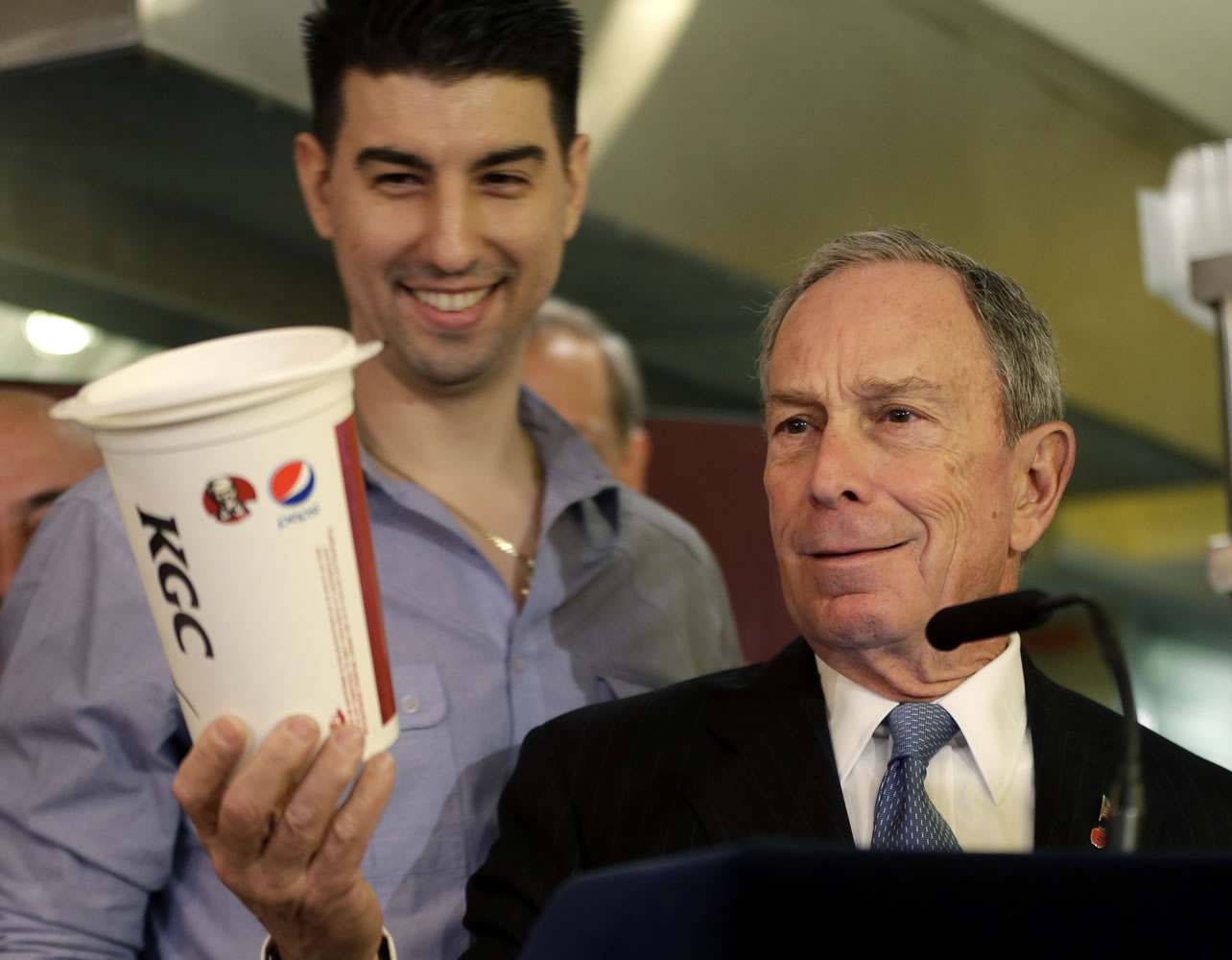NEW YORK — The city challenged a ruling throwing out Mayor Michael Bloomberg’s proposal to restrict sales of large-size soda drinks, calling the decision by a state court judge “contrary to law.”
In a five-page notice of appeal, the city said it would fight the March 11 ruling by New York Supreme Court Justice Milton Tingling before the court’s appellate division in Manhattan. Tingling barred the ban from becoming law Tuesday, saying it had too many loopholes and violated the jurisdiction of New York’s City Council.
“We are moving forward immediately with our appeal,” said Michael Cardozo, corporation counsel of the city’s law department. “We believe the judge was wrong in rejecting this important public health initiative. We also feel he took an unduly narrow view of the Board of Health’s powers.”
The city’s Board of Health in September approved the plan to cap the size of sugary soft drinks sold in restaurants, movie theaters, stadiums and arenas at 16 ounces (473 milliliters) a cup. In October, groups representing beverage makers, restaurants and theaters asked the court to quash the regulation as “unprecedented interference” with consumer choice. Tingling issued a permanent injunction barring the city from implementing the plan.
“The loopholes in this rule effectively defeat the stated purpose,” Tingling wrote. “It is arbitrary and capricious because it applies to some but not all food establishments in the city, it excludes other beverages that have significantly higher concentrations of sugar sweeteners.”
The plaintiffs said the city had overreached and ignored the rights of New Yorkers to make their own choices. The plan is “grossly unfair” to small businesses such as street-food vendors and pizzerias because convenience and grocery stores can still sell the larger sizes, lawyers for the plaintiffs said.
The city argued it’s trying to stem an epidemic of obesity driven by consumption of sugary beverages, which is rising because food establishments sell ever-larger portions. Under the rule, consumers are free to buy an unlimited number of smaller drinks and get refills.
Bloomberg is the majority owner of Bloomberg LP, parent of Bloomberg News.
The Board of Health last year ordered the restrictions put in place. Food-service establishments would have had three months to comply; after that, they would have faced a $200 fine each time a city inspector found violations. The ban wouldn’t have applied to convenience stores, bodegas and groceries, which are regulated by the state.
Since taking office in 2002, Bloomberg, 71, has made public health a hallmark of his administration. He’s banned artery- clogging trans-fat food additives and workplace smoking; raised tobacco taxes; increased testing for HIV, cholesterol and blood pressure; and required restaurant chains to post the calorie content of menu items.
The mayor, a Republican turned independent, said such actions have raised life expectancy in the city to almost 81 for babies born in 2010, 2.2 years longer than the national average.
“When our administration implemented calorie counts and worked to eliminate trans-fats in restaurants, we were taken to court, but today both reforms are recognized as models,” Bloomberg said Tuesday during a news conference at Lucky’s Restaurant in Manhattan, where the owners said they would voluntary adopt the 16-ounce sugar-beverage limit. “Already our proposal to limit the size of sugary beverages has changed the national conversation around obesity and we are confident that yesterday’s court decision will be reversed on appeal.”
At a press conference this morning, New York City Council Speaker Christine Quinn, D, said, “It’s appropriate to let the court do its job and rule on what the issues are there relevant to the Board of Health’s power.”
“People who bet on Mike Bloomberg changing his mind on this are probably on a losing side of a bet,” Quinn said. “I suspect he will stick with the plan, make its way through the court and we’ll see where we end up there.”
Quinn announced this week that she is running for her party’s nomination in the mayoral election in November. She didn’t address the judge’s assertion that the soda ban should have been approved as a city council ordinance, rather than as a decree by the mayor’s appointed Board of Health.
Quinn has received more than $10,000 in campaign contributions from Coca-Cola employees.
“Being a responsible corporate citizen means participating in all aspects of our communities,” Coca-Cola said in a statement. “That includes lending our voice to the political process. We support candidates that promote fair policies that enrich the communities and marketplaces where Coca-Cola employees live and work.”
Boston barred sweetened soda and junk food from school vending machines in 2004, and Mayor Thomas Menino last year ordered a phased sugar-drink ban in all municipal buildings and city-sponsored events. San Francisco and Los Angeles County have also acted to reduce sugared-drink consumption, according to Harvard University’s School of Public Health.
A Feb. 28 Quinnipiac University poll found that city voters oppose the New York ban, 51 percent to 46 percent, with a 3.1 percentage-point error margin. A lobbying group backed by consumers and industry executives, New Yorkers for Beverage Choices, orchestrated a series of protests at City Hall last year.



